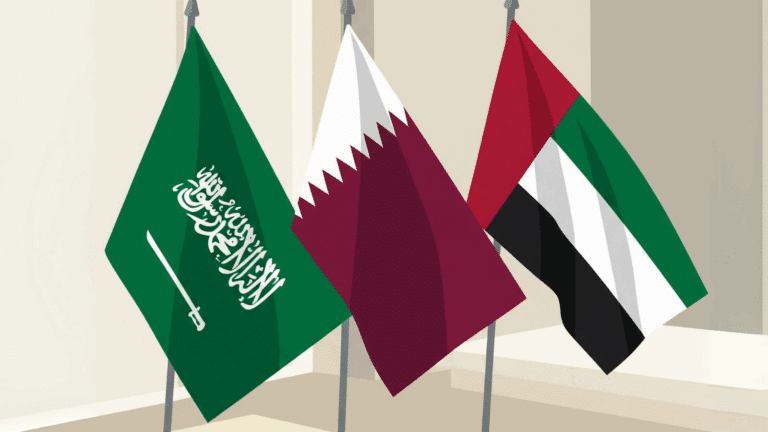Michael Smolens: Clean energy politics heat up for GOP, but it’s not about climate change
Republican senators seek to reverse cuts in renewable energy tax credits that could hurt their states as global warming continues apace.
Current Access Level “I” – ID Only: CUID holders, alumni, and approved guests only
and Corey Johnson
This article was originally published in Energy Intelligence’s World Energy Opinion http://beta.energyintel.com/world-energy-opinion/the-sanctions-threat-to…
Tensions between the US and Russia have once again risen high, with EU gas trade and the proposed Nord Stream 2 pipeline from Russia to Germany, possibly becoming a point of contention. But unlike past skirmishes, the US now possesses newly found energy wealth, an administration eager to exert dominance in global energy, a president with an ill-defined yet peculiar relationship with the Russian leadership, and a Congress determined, through a new sanctions bill, to punish Moscow over its meddling in last year’s US elections and to ensure pressure is maintained on Russia over the Ukraine conflict. Even if Capitol Hill is mainly looking to contain a rogue president, and voicing its frustrations over Russia’s behavior in a number of areas, the sanctions bill is, in the current political context, likely to be perceived rather differently in reality, in Europe and elsewhere.
Already approved by the House of Representatives, the bill will most likely fly through the Senate, before landing on the desk of President Donald Trump. Should Trump consider a veto, a two-thirds majority in Congress would surely overthrow it. The legislation posits that Trump may, in coordination with allies, impose additional sanctions on anyone significantly contributing to projects enabling Russian energy exports.
One of the authors of this piece wrote several months ago that policymakers in Mexico might become concerned that the US could turn into a Russia-like “supply risk” by using its newfound abundance of oil and gas to attempt to achieve foreign policy objectives.
As we made clear at the time, there was no reason to believe that the US was willing, or able, to use natural resources as a political tool. But with the Trump administration now adopting the policy of American “energy dominance” on the global stage — a signal that energy, in this government’s eyes, is not just a commodity to be traded by private actors but an instrument of foreign and trade policy — there is good reason to revisit this earlier assumption, despite reassuring statements to the contrary.
Still, we view the current path in Washington as unwise. Against the backdrop of the dubious relationship between the Trump administration and the Russian regime, the urge on Capitol Hill to cement existing sanctions to prevent their sudden removal is understandable.
But new sanctions targeting energy infrastructure are a questionable tool if the White House is pursuing “energy dominance.” There is a very real possibility that the measures contained in the bill will be wrongly interpreted and could possibly backfire, not least as a result of retaliatory measures from Europe, or Russia.
The Nord Stream Question
There is still some uncertainty as to whether Nord Stream 2, a planned natural gas pipeline from Russia to Germany through the Baltic Sea, will eventually get built. Opponents could come up with legal arguments to block the project, but we consider that outcome unlikely, as any viable legal objections would have already been presented over the years of deliberations on the project. If, however, the new US sanctions were to be enforced, Nord Stream 2’s five European backers — Royal Dutch Shell, France’s Engie, Austria’s OMV, and Germany’s Wintershall and Uniper — would likely withdraw, making this an exclusive undertaking by Russian state gas giant Gazprom. Under this scenario, a new major pipeline would be built from Russia to the EU as a solely Russian project, in which Europeans would not have a commercially significant stake.
For the US, whether or not Nord Stream 2 gets built is of little consequence. The US has no direct economic interest in the pipeline, and longer-term upstream interests in Russian oil and gas have, grudgingly, been put on indefinite hold following the sanctions imposed in 2014 by the Obama administration in response to the Ukraine crisis. But another part of the puzzle involves the desire of both the Trump administration and US lawmakers from oil and gas producing states to boost US energy exports.
This is certainly how the proposed legislation has been received in much of Europe. The foreign ministries of Germany and Austria suggested that the promotion of US LNG was at the heart of the inclusion of Nord Stream 2 in the original sanctions bill. This approach — mixing a desire to punish Russia for its transgressions with a well-publicized goal of promoting US energy exports — is problematic on a number of levels.
The sanctions bill claims concern about European supply security, but those concerns, and the premise that building Nord Stream 2 places such security in jeopardy, are likely exaggerated. European policy makers have pursued a broad strategy of market integration and supply diversification, which does not promise hundreds of different suppliers in Europe, but does create a competitive environment in which natural gas, once in the EU, can be resold by the company that owns the commodity.
A Threat to Security?
Our own research suggests that even in incidental countries in Central and Eastern Europe, the development of Nord Stream 2 is viewed as a net positive for their energy security. Evidently, solidifying and possibly increasing the share of Russian gas in the European fuel mix is politically contentious, even if the idea that Russia will turn off the taps, to Germany in this case, is likely overstated, not in the least because Gazprom does not have another comparable outlet for selling its product. Rather than improve European energy security, then, the new sanctions bill only further complicates diplomatic engagement with key US allies in Europe and with Russia at a time when, in the words of US Secretary of State Rex Tillerson, such engagement is desperately needed on a host of issues.
Another often-voiced concern has been the future of Ukraine, should natural gas transit face significant reductions. EU and US representatives have repeatedly urged their Russian counterparts not to end gas transit via Ukraine, and even though Gazprom and Russia remain committed to a significant reduction — as, indeed, do many of their European clients — a complete cessation of transit is increasingly unlikely. A broad palette of other measures, e.g. increased efficiency, domestic market reform, reducing corruption, cutting subsidies, and incentivizing domestic exploration, should be part of the long-term strategy to help Ukraine finds its course.
In addition, a new round of US sanctions might further divide and weaken Europe, which only serves to benefit Russia. To be sure, Germany and other Northwest European states have not made a meaningful effort to address the concerns of some Central and Eastern European member states related to gas supply security from Gazprom and its abuse of market power. However, setting aside historical animosities and emotions in favor of realities on the ground, there is substantial evidence to suggest that those concerns are greatly overblown.
European markets are reasonably well-integrated so that natural gas can flow throughout the EU, and most member states have made investments to gain access to diverse supplies. While the integration of gas markets is not complete and the market is by no means perfect, huge progress has been made. Our research suggests that European policymakers agree with this assessment, but cannot publicly take a stance, because EU member states remain deeply divided on the issue of energy security and several member states remain fierce opponents of Nord Stream 2. But this is a European discussion that Europeans will have to solve.
The US has played a curious role in this debate for years, publicly picking sides as if US energy security were at stake instead of helping to reconcile European interests, and thus strengthen its historic partners. Regrettably, the new sanctions bill explicitly states that this will continue to be US policy going forward, even though we have little indication that the White House can be bothered with the nuances and complexities of European energy security.
So what now needs to happen? Member states in Northwestern Europe need to more adequately address concerns over Nord Stream 2. In turn, opponents need to let go of counterproductive and dogmatic positions on energy security that are not in line with current gas market realities and too often fall into nationalistic clichés. Involved governments would be well advised to consider that there is an important difference between this bill, and enforced sanctions, and avoid getting into a spiral of tit-for-tat measures.
The EU — partly inspired by the US experience — has successfully, if not yet fully, liberalized its internal gas market. It would be a shame to compromise the principles of this internal market by blocking an additional transit route on political grounds, just when the decade-long liberalization process is starting to bear fruit. We observe that in recent years, Gazprom has found itself forced to adapt to the new realities of the European gas market, and adopt more flexible delivery systems for its product, and market-based pricing, at times forced by European regulatory agencies. There is no better example to illustrate that this market-based, flexible model is slowly but surely replacing the rigid, centralized approach that Russia was long known for.
Unfortunately, in one of life’s great ironies, it is now the US and the Trump administration, with its agenda of ‘energy dominance’, that is signaling the possibility of moving away from a market-based approach toward one of nationalist bluster and empty promises. We can only hope that it will not move beyond rhetoric.
President Donald Trump's first official foreign policy trip, as in his first term, was to Saudi Arabia earlier this month, with additional stops in Qatar and the United Arab Emirates.

PetroStates and ElectroStates clash as fossil fuels and clean energy reshape global power, strategy, and alliances.

